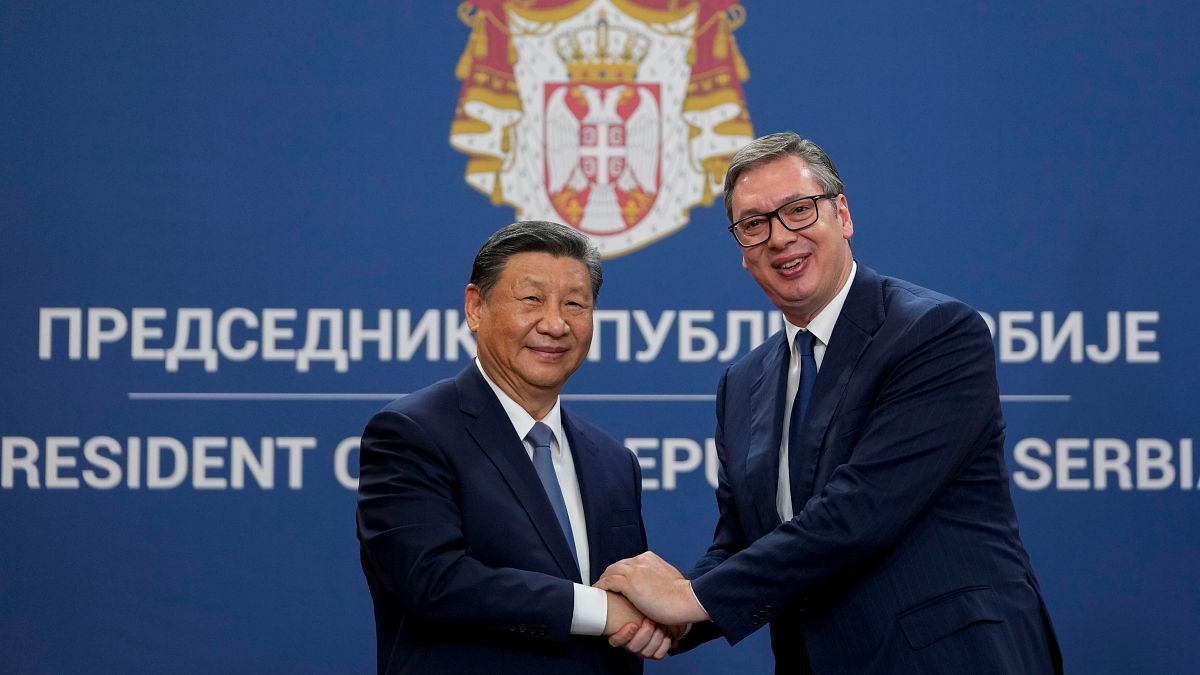The recent free trade agreement between China and Serbia is set to strengthen economic and political ties between the two countries. This agreement, part of a broader partnership called “Shared Future”, will eliminate tariffs on nearly 95% of Serbia’s exports to China over the next five to ten years. With Chinese President Xi Jinping describing the relationship as “rock solid”, this move is seen as a significant step towards securing Serbia’s future. This development comes amidst escalating tensions between China and the EU, particularly regarding allegations of espionage and potential tariff increases on Chinese electric vehicles.
Electric cars are poised to play a pivotal role in China’s expansion strategy, with Serbia potentially becoming a key manufacturing center for these vehicles. Victor Gao, Vice President of the Center for China and Globalization, emphasized that the partnership between China and Serbia extends beyond electric vehicles. He highlighted the importance of mutual respect and understanding in fostering strong economic ties. Recognizing Taiwan as part of China is viewed as a crucial component in building a positive economic relationship with Beijing, according to Gao.
In addition to Serbia, China has also established close ties with Hungarian Prime Minister Viktor Orbán, whose government is actively seeking investments in various sectors. Orbán’s government aims to attract major investments in infrastructure, manufacturing, energy, and technology. President Xi Jinping is scheduled to visit Hungary following his trip to Serbia, underscoring the significance of China’s partnerships in the Balkan region and beyond. These strategic alliances are expected to further China’s economic influence and cooperation in Europe, solidifying its position as a key player in global trade.
The growing economic cooperation between China and Serbia, as well as other European nations, highlights the importance of nurturing strong diplomatic relationships. The recent free trade agreement between China and Serbia demonstrates the mutual benefits of fostering trade partnerships and expanding market access. By eliminating tariffs on a wide range of Serbian exports to China, both countries stand to gain economically and politically. This agreement serves as a testament to the deepening ties between China and Serbia, paving the way for enhanced collaboration in various sectors, including electric vehicle manufacturing.
China’s emphasis on electric vehicles as a key component of its expansion strategy underscores its commitment to sustainable development and innovation. With Serbia potentially becoming a significant manufacturing hub for electric cars, this sector is poised for rapid growth and transformation. The shift towards electric vehicles aligns with global efforts to reduce carbon emissions and promote environmentally friendly transportation solutions. By positioning Serbia as a key player in the electric vehicle market, China aims to accelerate the transition from traditional fuel cars to electric vehicles, further strengthening economic ties between the two nations.
Overall, China’s strategic partnerships with countries in the Balkans and Europe reflect its broader vision for expanding its economic reach and influence on the global stage. By fostering strong diplomatic relationships, promoting trade agreements, and investing in key sectors such as electric vehicles, China aims to enhance its economic presence and cooperation with international partners. The recent developments in China-Serbia relations and the broader context of China-Europe partnerships underscore the importance of collaboration, mutual respect, and shared economic interests in driving sustainable growth and development in the region.











